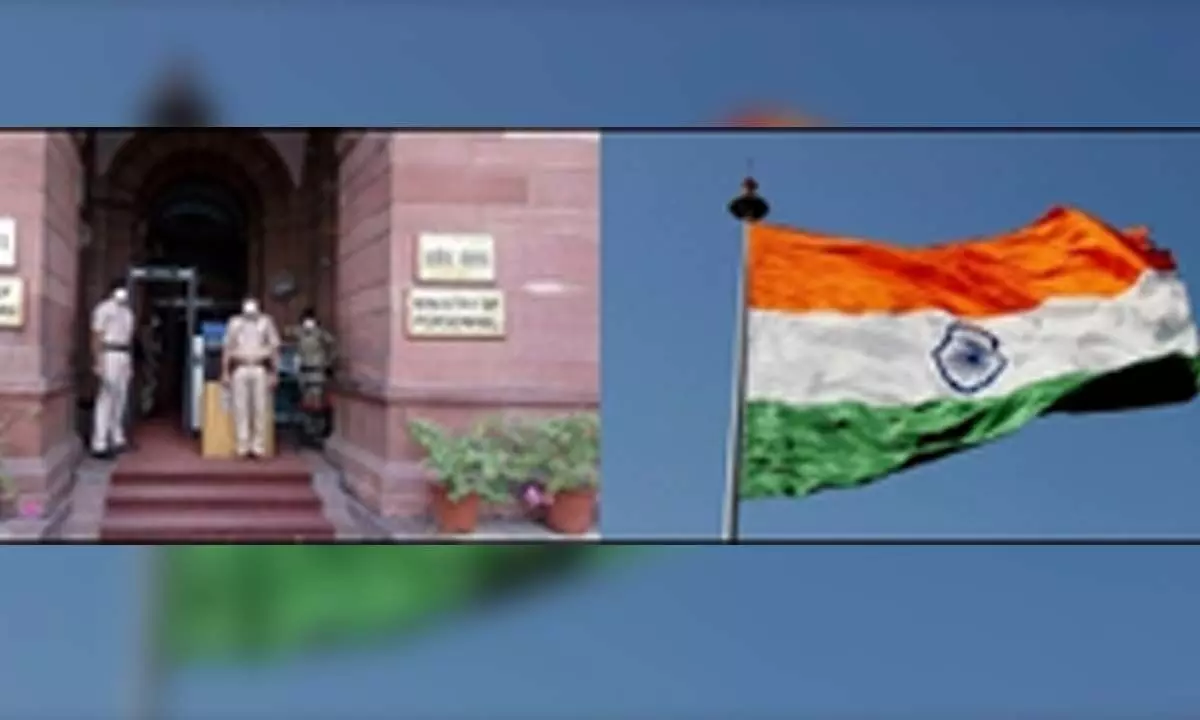Live
- Top Electric SUV Launches in 2025: Hyundai, Tata, Maruti Updates
- Agricultural Market Committee Oath-Taking Ceremony Completed
- Medical Experts Urge Public to Boost Immunity and Maintain Hygiene to Prevent Seasonal Illnesses
- Tourism Sector Given High Priority - Collector Badavath Santosh.
- Parents Should Actively Participate in Children’s Education: Minister Jupally Krishna Rao
- "Prompt Resolution of Public Grievances: 47 Applications Addressed in Prajavani Program".
- Kuppam Constituency to Lead the Way in Solar Power: Energy Minister Gottipati Ravi Kumar
- Microsoft Urges Users to Shift from Windows 10 to Windows 11 in 2025
- District Collector Inspects Progress of Double Bedroom Housing Projects.
- Nothing Phone 2a Plus Gets Android 15 with Stable Nothing OS 3.0: Details
Just In
'Urban Naxals' unmasked: The invisible threat to India's sovereignty

Urban Naxals are intellectual supporters of Marxist-Maoist-Leninist ideology, which promotes a radical form of communism.
Urban Naxals are intellectual supporters of Marxist-Maoist-Leninist ideology, which promotes a radical form of communism. Unlike rural Naxals who engage in armed conflict in remote tribal areas, Urban Naxals operate in cities, using ideas, narratives, and propaganda to destabilize the nation. They aim to replace nationalism with a vision of a stateless, classless society.
Inspired by the communist thinker Antonio Gramsci, Urban Naxals believe that nations maintain control through cultural influence, or "hegemony," which they seek to dismantle. They view institutions like religion, culture, and nationalism as tools of oppression. While working toward their ideal of communism, Urban Naxals feel justified in creating chaos, mistrust, and anarchy to undermine the current state and seize power.
To achieve this, Urban Naxals use every means available: spreading misinformation, exploiting legal loopholes, and using social media to manipulate public opinion. Despite claiming to oppose only the government, their actions often target the nation itself, fostering ideas of secession, anti-nationalism, and anarchy.
It’s crucial to differentiate Urban Naxals from democratic opposition parties. Opposition parties criticize government policies within the democratic framework, without opposing India’s existence as a nation. Urban Naxals, however, actively promote anti-national agendas and work to weaken the country’s unity, posing a distinct and concerning threat.
Urban Naxals believe that any development comes at the cost of exploiting the poor and marginalized. This drives their agenda to question, criticize, and disrupt everything associated with the idea of India. Their default stance is one of negativity and suspicion, fostering narratives that challenge the nation’s unity and integrity. They show disrespect for India’s sovereignty, national symbols, and institutions like the flag and armed forces, dismissing them as tools of a capitalist system. Their ultimate aim is to dismantle the nation-state, pushing anti-India narratives that distort India's history and achievements.
Urban Naxals can be broadly divided into two groups:
Outsiders to the System: This group influences narratives from outside formal institutions. They may include filmmakers, high-profile lawyers, award-winning producers, university professors, historians, news anchors, writers, self-styled rationalists, human rights activists, poets, civil rights advocates, and environmentalists. They often use their public positions to spread anti-national sentiments under the guise of intellectualism and activism.
Insiders in the System: This group operates from within institutions, attempting to disrupt the nation’s progress by exploiting legal, judicial, and constitutional loopholes. They use these platforms to delay or block initiatives that support national interests.
In the Indian context, Urban Naxals oppose the idea of India itself, supporting narratives that promote chaos and conflict rather than constructive criticism. Their primary tools are misinformation, historical distortion, and an anti-national narrative that undermines the nation’s unity and progress.
Urban Naxals in the Indian Context
Support for Secession: Urban Naxals openly support secessionist slogans like "Bharat Tere Tukde Honge" and "Bharat Teri Barbadi," which reflect their anti-national ideology. They idealize those who promote secession and even terrorism, showing sympathy for separatist movements in Kashmir, the Northeast, Punjab and other insurgencies. They have been part of Deep State of earlier regimes who connived with their ideology.
Instigating Civil War: They often attempt to instigate unrest and civil conflict in India. Urban Naxals are vocal in their criticism of the Indian Army, labeling it as an oppressive tool of the state. For instance, they celebrated the killing of 76 paramilitary personnel in Dantewada, Chhattisgarh, illustrating their support for violence against the state.
Funding for Propaganda: Urban Naxals collect funds under the guise of supporting armed struggles, often sourced from international groups, NGOs, and anti-India organizations. These funds are obscure, often illegal, and support their ideological propaganda.
Propaganda Warfare: A new trend among Urban Naxals is a "war of propaganda." They distort facts and spread misinformation through social media, using platforms like WhatsApp, hashtags, and web channels to create viral anti-national narratives.
Hijacking Movements: Unable to generate movements of their own, Urban Naxals latch onto existing protests as "parasites" to amplify social tensions and establish a culture of perpetual unrest.
Urban Naxals are waging an "ideological war" against India. As a nation, it is essential to uncover and counter their narratives to protect unity and stability.

© 2024 Hyderabad Media House Limited/The Hans India. All rights reserved. Powered by hocalwire.com






